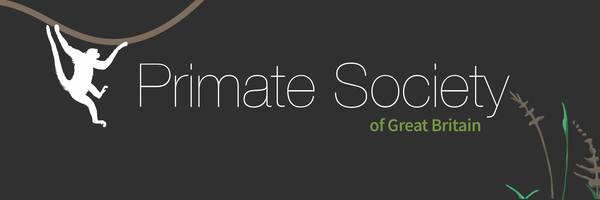Most universities that offer undergraduate courses in primatological subjects will offer similar research programmes at postgraduate level. Several universities offer specific courses that are focused on primatology:
Liverpool John Moores University
The MSc in Primate Behaviour, Conservation and Welfare covers key topics and latest advances in the study of primates across contexts. It includes a subsidised taught field course at a primate field site (staff work at sites in Africa, Asia and South America). Other taught modules cover latest scientific technologies in the laboratory (topics may include genomics, AI, programming, endocrinology, health assessment and cognitive assessment) and transferable scientific research skills including science communication, grant writing and writing for publication. These taught components will equip you with the skills to run your own primate research project at any of a number of locations including primate field sites, sanctuaries, zoos or with online databases. This course covers the skills needed to engage in scientific research to publication standard, and equips students with the skills required to go on to study for a PhD, or work in a wide range of sectors concerned with the behaviour, conservation and welfare of primates.
Link to course video
Link for more information
LJMU also runs the MSC Wildlife Conservation.
Oxford Brookes University
The MSc in Primate Conservation programme has been running for more than a decade at Oxford Brookes, and was recently awarded the highly prestigious Queen's Anniversary Prize for Excellence in Higher Education. Modules include those in primate diversity, biogeography and status; people-primate interactions; primate conservation and genetics and population management.
Durham University
The Evolutionary Anthropology group at Durham includes several primatologists and hosts the International Journal of Primatology. They offer an MSc by Research in Biological Anthropology and a PhD in Biological Anthropology. For further information, please click here.
The University of Kent
The Durrell Institute of Conservation and Ecology (DICE) in the School of Anthropology and Conservation at the University of Kent offers a MSc in Conservation and Primate Behaviour. DICE provides a unique learning environment focused on research-led teaching and on promoting student experience. It also offers a unique synergy between conservation and anthropology, a dynamic school community and excellence in teaching and research. This programme promotes an interdisciplinary approach and understanding of primate conservation issues. Students will have the opportunity to acquire a diverse sets of skills and knowledge across ecological, behavioural, and social methodologies and perspectives geared at achieving effective conservation management. This programme aims to highlight the benefits of incorporating an understanding of local human communities' experiences and knowledge and of primate behavioural and landscape ecology to foster successful conservation of non-human primates. This programme is relevant to the work of research institutions, international and national NGOs, consultancy firms and/or contractors, international agencies and donors. If interested, please apply online.
The University of Stirling
The University of Stirling offers an MSc in Human Animal Interactions. Whilst not directly focussed on primates, this degree will introduce students to interdisciplinary approaches and a diverse range of methods used to research our relationships with other species. This course will cover a broad range of topics and considers human-animal interactions across a diverse range of contexts from pet owning to animal assisted interventions, zoos, farms and conservation. Psychology at Stirling has a vibrant research culture, with many internationally renowned primatologists (including Professors Phyllis Lee and Hannah Buchanan-Smith, Drs Christine Caldwell and Sarah Vick). Students will become members of the Behaviour and Evolution research Group (BERG) who meet up for weekly research seminars.
The University of St Andrews
The MSc in Evolutionary and Comparative Psychology provides advanced research training in a range of intellectual and practical skills associated with evolutionary and comparative approaches to the study of mind. On completion, students should be equipped with the necessary skills to facilitate research at MPhil or PhD level, and 67% of past course graduates have gone on into PhD research. The program provides a detailed knowledge of the evolutionary and comparative literature and principal theoretical and methodological issues in the field. In addition students also acquire the statistical and methodological skills necessary to undertake research in evolutionary psychology. A significant piece of independent research is undertaken in the final thesis, with potential opportunities to work at:
the Living Links Centre and Budongo Trail in Edinburgh Zoo,
the Wolfgang Köhler Primate Research Center in Leipzig,
the Budongo Conservation Field Station in Uganda,
the Taï Monkey Project in Ivory Coast and
the Inkawu Vervet Project in South Africa.




